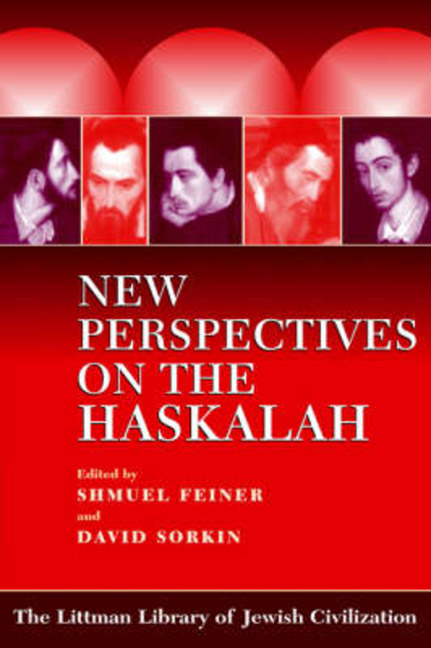Book contents
- Frontmatter
- Preface
- Contents
- Note on Transliteration
- Introduction
- 1 The Early Haskalah
- 2 Naphtali Herz Wessely and the Cultural Dislocations of an Eighteenth-Century Maskil
- 3 Enlightenment Values, Jewish Ethics: The Haskalah's Transformation of the Traditional Musar Genre
- 4 Was there a ‘Haskalah’ in England? Reconsidering an Old Question
- 5 Strategy and Ruse in the Haskalah of Mendel Lefin of Satanow
- 6 The Struggle of the Mitnagedim and Maskilim against Hasidism: Rabbi Jacob Emden and Judah Leib Mieses
- 7 Magic and Miracle-Workers in the Literature of the Haskalah
- 8 Portrait of the Maskil as a Young Man
- 9 Reality and its Refraction in Descriptions of Women in Haskalah Fiction
- 10 Enlightened Rabbis as Reformers in Russian Jewish Society
- 11 Towards a Historical Definition of the Haskalah
- Glossary
- Notes on Contributors
- Bibliography
- Index
4 - Was there a ‘Haskalah’ in England? Reconsidering an Old Question
- Frontmatter
- Preface
- Contents
- Note on Transliteration
- Introduction
- 1 The Early Haskalah
- 2 Naphtali Herz Wessely and the Cultural Dislocations of an Eighteenth-Century Maskil
- 3 Enlightenment Values, Jewish Ethics: The Haskalah's Transformation of the Traditional Musar Genre
- 4 Was there a ‘Haskalah’ in England? Reconsidering an Old Question
- 5 Strategy and Ruse in the Haskalah of Mendel Lefin of Satanow
- 6 The Struggle of the Mitnagedim and Maskilim against Hasidism: Rabbi Jacob Emden and Judah Leib Mieses
- 7 Magic and Miracle-Workers in the Literature of the Haskalah
- 8 Portrait of the Maskil as a Young Man
- 9 Reality and its Refraction in Descriptions of Women in Haskalah Fiction
- 10 Enlightened Rabbis as Reformers in Russian Jewish Society
- 11 Towards a Historical Definition of the Haskalah
- Glossary
- Notes on Contributors
- Bibliography
- Index
Summary
AS early as 1893 the historian Lucien Wolf, in his inaugural address at the opening meeting of the Jewish Historical Society of England, articulated in the form of a rhetorical question what appeared to be a common notion about the history of Anglo-Jewry in his day: ‘Where are your great men? … Where is your Maimonides, your Jehuda Halevi, your Isaac Abarbanel?’ Feeling the acute need to justify the foundation of an organization devoted exclusively to the study of Anglo-Jewish history, Wolf could find no better answer than to admit that English Jews had never produced such prolific and seminal Jewish thinkers. The significance of Anglo-Jewish history was to be found elsewhere:
The answer to these questions is, of course, simple. We have not produced any such men, and even if we had, it would be no proof that our history was more important than the histories of the French and German communities which, in this respect, are almost in the same case with ourselves. The truth is that this criticism belongs to a primitive order of historical science. Biography does not cover the whole domain of history. The true function of the historian is to reconstruct the lives, not of personalities but of communities and nations out of the largest possible accumulation of social facts and individual experiences.
Wolf's protestation regarding the emphasis on biography over communal history based on the ‘accumulation of social facts and individual experiences’ might be translated into a more contemporary historical idiom to mean an excessive preoccupation with intellectual history, one focusing on the intellectual elites of the past, at the expense of an understanding of the social and political forces of Jewish communal life. Clearly, for Wolf, the historian's gaze on the latter rather than the former was not only legitimate but underscored the importance of Anglo-Jewry's past. That French and German Jewries were similarly deficient in their lack of intellectual giants was surely a more questionable assumption—Rashi or Moses Mendelssohn come quickly to mind—nevertheless, Wolf was more persuasive in arguing that the real significance of England's Jewish past rested primarily on social and political rather than intellectual grounds.
- Type
- Chapter
- Information
- New Perspectives on the Haskalah , pp. 64 - 85Publisher: Liverpool University PressPrint publication year: 2001

